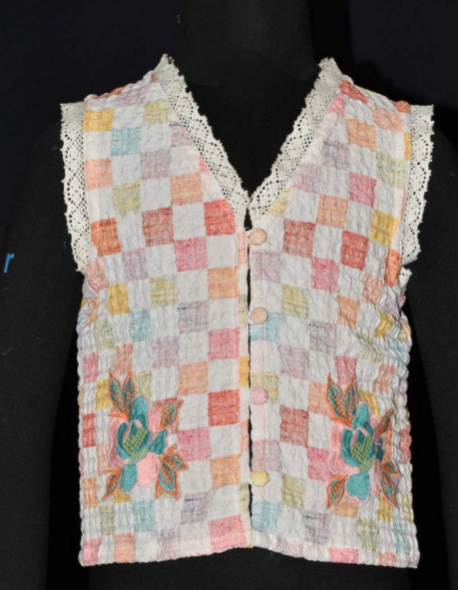How Indian Garment Manufacturers Maintain Their SEDEX, BSCI, And WRAP Certifications

Sustainability and ethical procurement of raw materials to labor treatment are more than just trends. Global garment buyers are increasingly taking steps to ensure that their garments are bought from manufacturers who truly ensure transparency of their ethical and sustainable practices. However, word of mouth isn’t good enough for most cases.
That’s why there are numerous certifications to prove manufacturers actually fulfill international standards of sustainability and business ethics. So, to understand how Indian garment manufacturers and cloth manufacturing companies maintain their certifications, let’s take a closer look into each certification and their eligibility criteria.
Crucial Sustainability Certifications in The Apparel Industry & Their Eligibility Criteria
There are numerous sustainability certifications in the private label apparel industry, here is a detailed overview of the most common and popular certifications.
-
SEDEX (Supplier Ethical Data Exchange)
The SEDEX platform helps manufacturers and companies show proof of their ethical performance, within their supply chains. This membership-based platform offers an audit format known as Sedex Members Ethical Trade Audit (SMETA). This audit evaluates four key aspects of the supply chain and manufacturing process, namely business environment, health and safety, labor standards, and business ethics.
To be eligible for the audit clearance companies must follow local labor laws and also Sedex’s own ethical standards. The company must not have any serious violations of child labor or unsafe working conditions. The participating companies are also required to upload manufacturing unit details and self-assessment reports to the Sedex platform.
-
BSCI (Business Social Compliance Initiative)
Developed by Amfori, the BSCI works to help companies prove their employee working conditions are safe and as per international standards. The certification is based on the Amfori BSCI Code of Conduct. The key principles of this certification are ensuring workers get occupational safety at work, non-discriminatative employment, decent work hours, fair remuneration, no force labor, and protection of the environment.
To be eligible for this audit, manufacturers can’t apply themselves. They must be invited in by buyers who are members of Amfori BSCI. International labor standards and national labor laws must be followed by the manufacturer. Lastly, auditors must be given full access to workers, documents, and facilities to ensure the audit process can be thorough and detailed.
-
WRAP (Worldwide Responsible Accredited Production)
As a non-profit agency, WRAP functions under 12 principles, which include compliance with local laws, fair wages to workers, safe working conditions for workers, and environmental responsibility undertaken by manufacturers. The eligibility criteria for WRAP audits are that the company must follow WRAP’s principles as well as local laws on labor, customs, and tax.
The companies must also maintain transparent records for all steps of employment from hiring to payroll and health and safety manamgent on site. Factories supplying to global
apparel brands generally require to get the WRAP certification as it is widely accepted in the US.
How Indian Garment Manufacturers Maintain Their Certifications?
Maintaining certifications require consistent effort from manufacturers. Here is a quick overview of the steps taken by custom clothing manufacturers and garment exporters in India.
-
Dedicated Compliance Team: Manufacturers have their own compliance teams who are fully equipped to ensure internal compliance is always monitored and there’s transparency in paperwork. These teams also work as liaison between the visiting auditors and the company.
-
Following Health & Safety Standards: Top garment manufacturers like CheerSagar ensure the company conducts regular fire drills, PPE training, and machinery safety checks.
-
Maintaining Complete Employee Records: Companies store digital records of employee contracts, IDs, payroll entries, and attendance to ensure complete transparency.
-
Standard Operating Procedures: Companies develop detailed operating procedures for employee code of conduct, anti-harassment or moonlighting protection guidelines, and grievance raising and redressal mechanisms internally. These practices reduce the risk of employee grievances and poor reflection of company policies in third-party audits.
Conclusion
Certifications work as significant trust signals to buyers, which makes them very valuable for small quantity manufacturers. If you want to learn more about how Indian manufacturers retain their certifications, check out the blog section on the Cheer Sagar website. And if you’re looking for Indian manufacturers with international sustainability certifications and export experience of over three decades, feel free to check out Cheer Sagar. You can learn more about their experience from the website.
Related Blog
Ink Options For Digital Fabric Printing: An Overview
The way garment manufacturing companies in India approach fabric printing has changed, thanks to digital textile printing. This innovation...
Characteristics To Look For In Clothing Manufacturers For Your Business
If you want to be successful in a clothing company, you must have a reputable garments manufacturer. Choosing the right...
Building A UK-Ready Apparel Supply Chain From India
As the global fashion industry continues to evolve, UK retailers are increasingly looking towards India for high-quality, affordable, and trend-driven...




